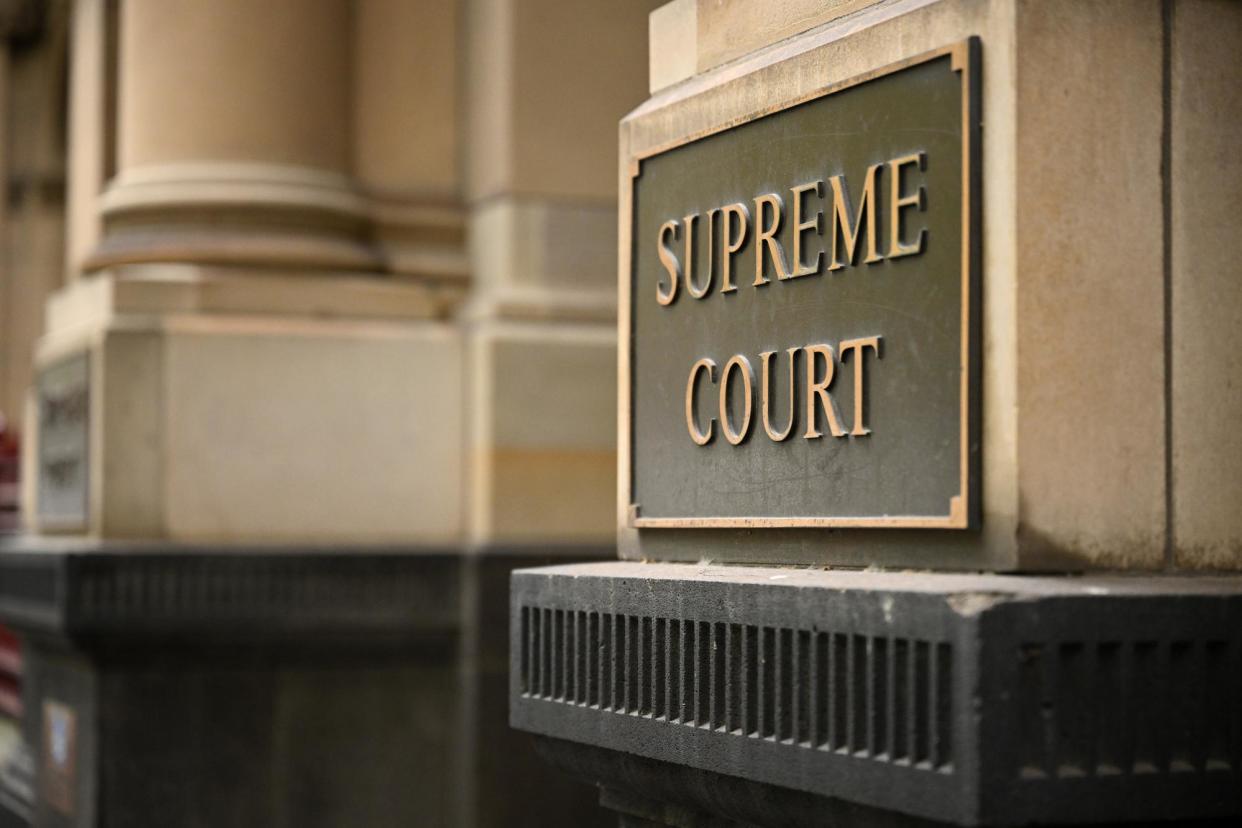Victims of crime should be provided with legal representation, Victorian inquiry finds

Victims of crime feel “silenced and sidelined” from the moment they speak to police through to when the courts finalise their case, with a landmark Victorian inquiry calling for sexual assault survivors in particular to have legal representation.
A systemic inquiry into victims’ participation in the justice system by Victoria’s Victims of Crime Commissioner (VOCC) identified a gap between the entitlements of victims “on paper” and their actual experiences.
“When victims report a crime, they expect to play a part in the justice process but in reality, most felt they were silenced and sidelined,” said the commissioner, Fiona McCormack.
This was particularly acute for victims of sexual assault, with the inquiry’s report – released on Monday – recommending they be provided with legal representation through various stages of the court process.
McCormack said while the Victorian government in 2018 introduced changes to the law to recognise the victim’s role as a participant in proceedings for criminal offences, it had not translated to tangible change.
Her inquiry heard from victims who said once they had reported a crime they felt excluded from the decision-making process, “relegated to the role of a passive witness”, “having no say” and being “told nothing”.
Many spoke about having to chase police and prosecutors for updates and being “blind-sided”, because they did not get information, including about court dates.
Once their case reached the court, almost 75% of the victims surveyed by the VOCC expressed concerns for their safety, mostly due to fear of having to interact with their perpetrator or their families.
One parent told the inquiry she had to sit beside her son’s alleged killer in a court foyer “because there were no separate spaces for victims and their families”.
Another victim said their perpetrator “smirked” at them throughout proceedings. They were denied alternative arrangements to read their victim impact behind a screen.
The inquiry said sexual assault victims faced “some of the most invasive and traumatic aspects of our adversarial trial process”, including cross-examination, applications to access their phone or medical records, and to introduce their sexual history into evidence.
“Leaving protection of victims’ rights up to prosecutors or judicial officers in sexual offence cases is not working well enough to protect victims’ rights and protect victims from secondary victimisation,” the report reads.
McCormack recommended sexual assault victims be provided with state-funded legal representation during some proceedings, to play a “protective role” for the victim that prosecutors don’t.
“Prosecutors are representing the state, not the victims, and at times there’s a conflict of interest in terms of what the victims need, or in providing them with information or advice,” she said.
“It can come as a huge shock to victims.”
Almost half of the victims (45%) surveyed by the VOCC said they would not want to participate in the justice process again and 25% said they would not report a crime again.
The inquiry heard some people were re-traumatised by the justice system and had experienced depression, anxiety and self-harm.
McCormack also had serious concerns for those who do not even make it to court.
“One thing that really concerned me was the people I spoke to who said that they hadn’t reported that they were a victim of a crime and they wouldn’t report it because of fear or distrust of police,” she said.
She said they included Indigenous people, migrants, those with a disability and members of the LGBTQ+ community.
McCormack’s inquiry makes 55 recommendations for “major structural changes”, including an independent body to review certain decisions by police and prosecutions, and alternative and culturally safe options for reporting crimes.
She said she hoped the report would be a “wake-up call” for the government, which was yet to respond to the Victorian Law Reform Commission’s landmark 2021 report into stalking laws.
“I’m running out of adjectives for the kind of horrific levels of violence and the number of women we’re seeing murdered by men in our community. I don’t know why this wouldn’t be a priority,” McCormack said.
• Information and support for anyone affected by rape or sexual abuse issues is available from the following organisations. In Australia, support is available at 1800Respect (1800 737 732). In the UK, Rape Crisis offers support on 0808 500 2222. In the US, Rainn offers support on 800-656-4673. Other international helplines can be found at ibiblio.org/rcip/internl.html


